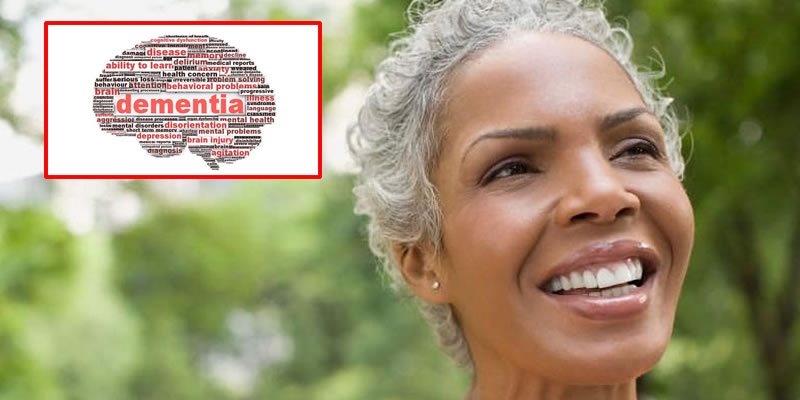Dementia is not a specific disease. It’s an overall term that describes a group of symptoms associated with a decline in memory or other thinking skills severe enough to reduce a person’s ability to perform everyday activities.
Alzheimer’s disease accounts for 60 to 80 percent of cases. Vascular dementia, which occurs after a stroke, is the second most common dementia type. But there are many other conditions that can cause symptoms of dementia, including some that are reversible, such as thyroid problems and vitamin deficiencies.
Dementia is often incorrectly referred to as “senility” or “senile dementia,” which reflects the formerly widespread but incorrect belief that serious mental decline is a normal part of aging.
Signs and symptoms
Dementia affects each person in a different way, depending upon the impact of the disease and the person’s personality before becoming ill. The signs and symptoms linked to dementia can be understood in three stages.
Early stage: the early stage of dementia is often overlooked, because the onset is gradual. Common symptoms include:
- forgetfulness
- losing track of the time
- becoming lost in familiar places.
Middle stage: as dementia progresses to the middle stage, the signs and symptoms become clearer and more restricting. These include:
- becoming forgetful of recent events and people’s names
- becoming lost at home
- having increasing difficulty with communication
- needing help with personal care
- experiencing behaviour changes, including wandering and repeated questioning.
Late stage: the late stage of dementia is one of near total dependence and inactivity. Memory disturbances are serious and the physical signs and symptoms become more obvious. Symptoms include:
- becoming unaware of the time and place
- having difficulty recognizing relatives and friends
- having an increasing need for assisted self-care
- having difficulty walking
- experiencing behaviour changes that may escalate and include aggression.
Causes
Dementia is caused by damage to brain cells. This damage interferes with the ability of brain cells to communicate with each other. When brain cells cannot communicate normally, thinking, behavior and feelings can be affected.
The brain has many distinct regions, each of which is responsible for different functions (for example, memory, judgment and movement). When cells in a particular region are damaged, that region cannot carry out its functions normally.
Different types of dementia are associated with particular types of brain cell damage in particular regions of the brain. For example, in Alzheimer’s disease, high levels of certain proteins inside and outside brain cells make it hard for brain cells to stay healthy and to communicate with each other.
The brain region called the hippocampus is the center of learning and memory in the brain, and the brain cells in this region are often the first to be damaged. That’s why memory loss is often one of the earliest symptoms of Alzheimer’s.While most changes in the brain that cause dementia are permanent and worsen over time, thinking and memory problems caused by the following conditions may improve when the condition is treated or addressed:
- Depression
- Medication side effects
- Excess use of alcohol
- Thyroid problems
- Vitamin deficiencies
Treatment and care
There is no treatment currently available to cure dementia or to alter its progressive course. Numerous new treatments are being investigated in various stages of clinical trials.
However, much can be offered to support and improve the lives of people with dementia and their carers and families. The principal goals for dementia care are:
- early diagnosis in order to promote early and optimal management
- optimizing physical health, cognition, activity and well-being
- identifying and treating accompanying physical illness
- detecting and treating challenging behavioural and psychological symptoms
- providing information and long-term support to carers.
